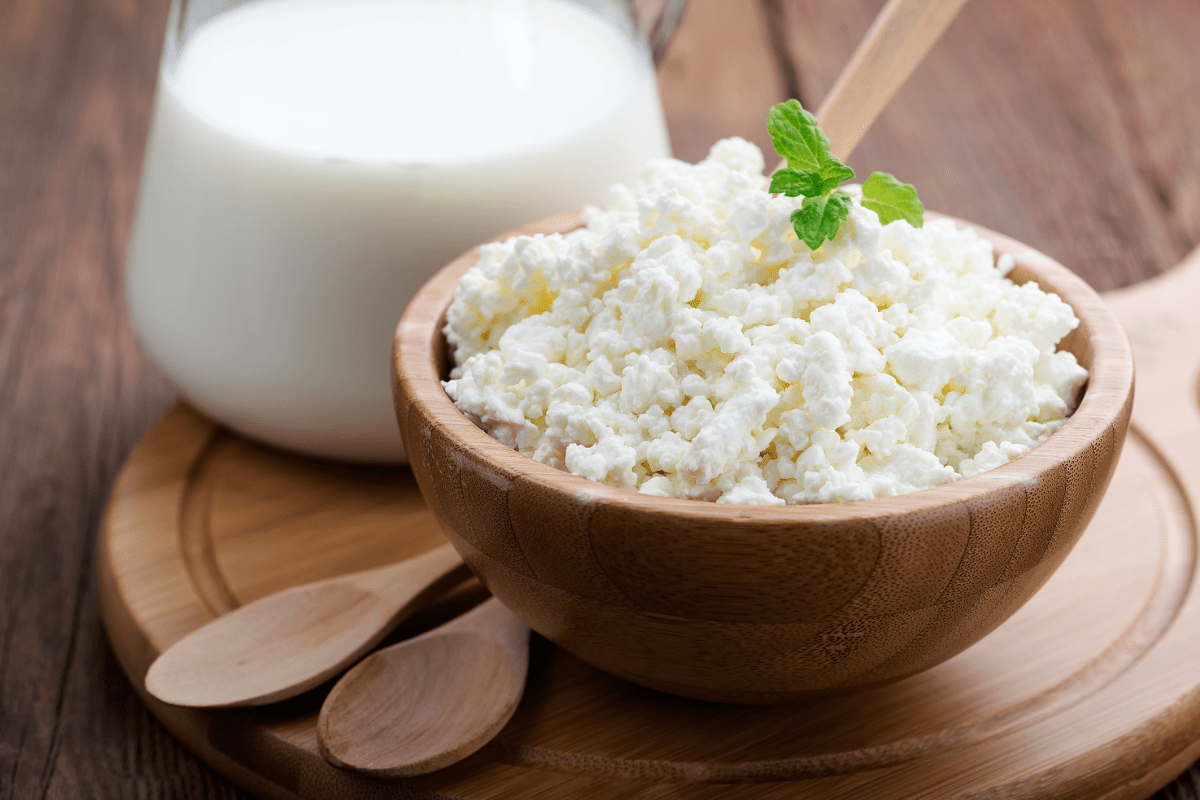Are you lactose or gluten intolerant and not sure what options there are for you in Greek yogurt at the supermarket? No worries! This article will explain everything you need to know. Step by step, we’ll cover:
- Lactose intolerance
- Lactose in Greek yogurt
- The positive effects of probiotics on lactose digestion and lactose intolerance
- Popular lactose free Greek yogurt brands
- Gluten intolerance
- Brands using additives that contain gluten
- Popular gluten free Greek yogurt brands
- Bonus material: a complete comparison chart of popular Greek yogurt brands with their nutritional values for people with other allergies
Greek yogurt is one of the most popular dairy products, and just like all natural dairy products it contains lactose. But did you know that lactose intolerance doesn’t have to be a deal breaker when it comes to Greek yogurt? You can enjoy it just as much as someone who can handle lactose just fine.
If you’re highly intolerant, there are some great brands out there that produce 100% lactose free Greek yogurt. If you have mild lactose intolerance, simple plain Greek yogurt might just do the trick for you. How come? During its production process much of the lactose is removed. Besides that the live active cultures, also called probiotics, inside Greek yogurt help digest lactose!
Are you okay with lactose but you just can’t seem to handle gluten? Rest assured! Greek Yogurt is a naturally gluten free food so if you have a sensitivity, you can still enjoy a nice cup of thick and creamy Greek Yogurt.
Lactose Intolerance
Lactose intolerance is the inability to digest lactose, which is a natural sugar in dairy products. People with lactose intolerance may experience abdominal pain, diarrhea, gas and stomach cramps when they ingest dairy. This can be the result of the person not making enough lactase to digest the lactose or not being able to absorb the lactose in the body. Contrary to some beliefs, lactose intolerance is not an allergy to lactose or dairy. It simply means that you are not able to break down or absorb lactose.
Lactose in Greek Yogurt
During the production of Greek yogurt, regular yogurt is strained multiple times to remove the whey. This gives Greek yogurt it’s unique and creamy taste, plus it also removes much of the lactose. In comparison to a cup of milk, which contains 12 grams of lactose, Greek yogurt only contains 4 grams of lactose per 6-ounce container. This officially qualifies Greek yogurt as a lower lactose food.
Besides that, yogurt is a product of the acidic fermentation of milk. Its production begins with the breakdown of lactose into glucose and galactose. Which means, this is great if you’re lactose intolerant because the process of breaking down lactose starts long before you even consume it!
Positive Effects of Probiotics on Lactose Digestion
The live active cultures (also called probiotics) found in Greek yogurt will help you to digest lactose more easily and can even help you build up a bigger tolerance to lactose. If you consume probiotics on a daily basis, these helpful bacteria will be ever present in your intestine to aid the digestion process. Curious to find out how probiotics work? You can learn more about them here.
Lactose Free Greek Yogurt Brands
Now if you’re highly intolerant and really can’t tolerate any lactose but you’re still craving some creamy and thick Greek yogurt, there are a number of brands that are lactose free and delicious! Just look on the label for it to say “Lactose Free” and it’ll be a safe food.
Gluten Intolerance
Gluten sensitivity or intolerance is a condition that causes a person to react after ingesting gluten. Gluten is a protein found in wheat, barley and rye. Symptoms vary widely and can include gastrointestinal problems, joint pain, fatigue and depression.
Luckily, almost all natural dairy products are gluten free. That includes Greek yogurt in its purest form, also called plain Greek yogurt. Though it is necessary to dig into this subject a little deeper. Firstly, because some brands use additives for flavor and preservation, which results in their plain Greek yogurt containing gluten. Secondly, there are a lot more variations of Greek yogurt on the market today, such as full fat, low-fat Greek yogurt and flavored Greek yogurt, which are all produced in a different way.
The top brands on the market today make their yogurt out of only two ingredients, milk and live active cultures. The live active cultures are added to the milk, which then creates yogurt. Consequently the yogurt is strained multiple times to remove the whey, which produces Greek yogurt. Because milk and live active cultures are the only ingredients used, plain Greek yogurt is gluten free most of the time. Though there is always a chance of cross-contamination with gluten from other products a manufacturer produces that possibly do include gluten-containing additives. Besides cross-contamination, some brands add thickeners. These brands are often called Greek-style yogurt. Be sure to look out for the following ingredients: gelatin, pectin, corn starch, whey protein concentrate and milk protein concentrate to prevent accidental contamination. Lastly, if you’re into flavored Greek yogurt, look out for any added thickeners and ingredients such as nuts, artificial color, chocolate, modified food starch and candies. All the above can be a sign of the brand not being gluten free.




